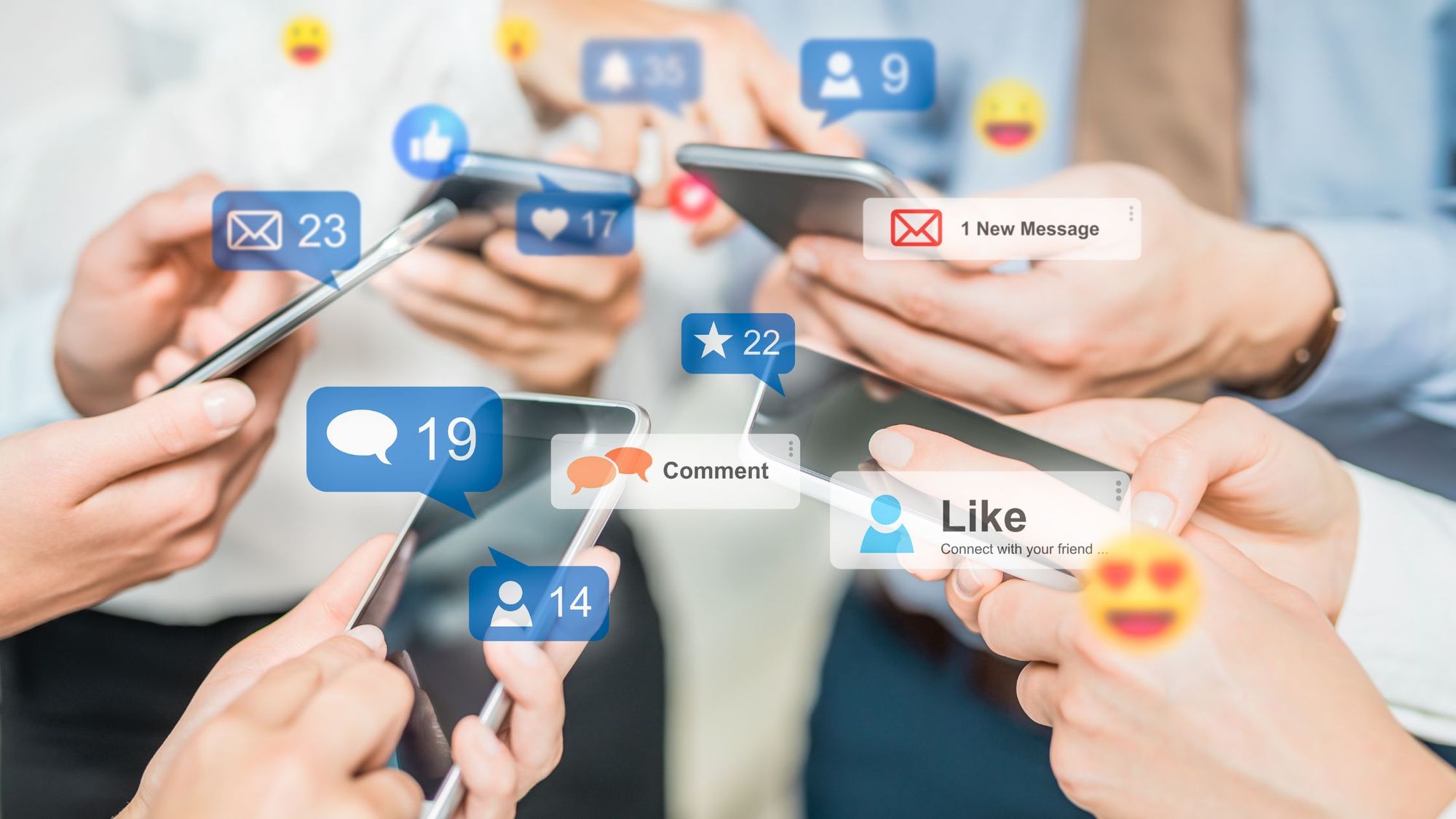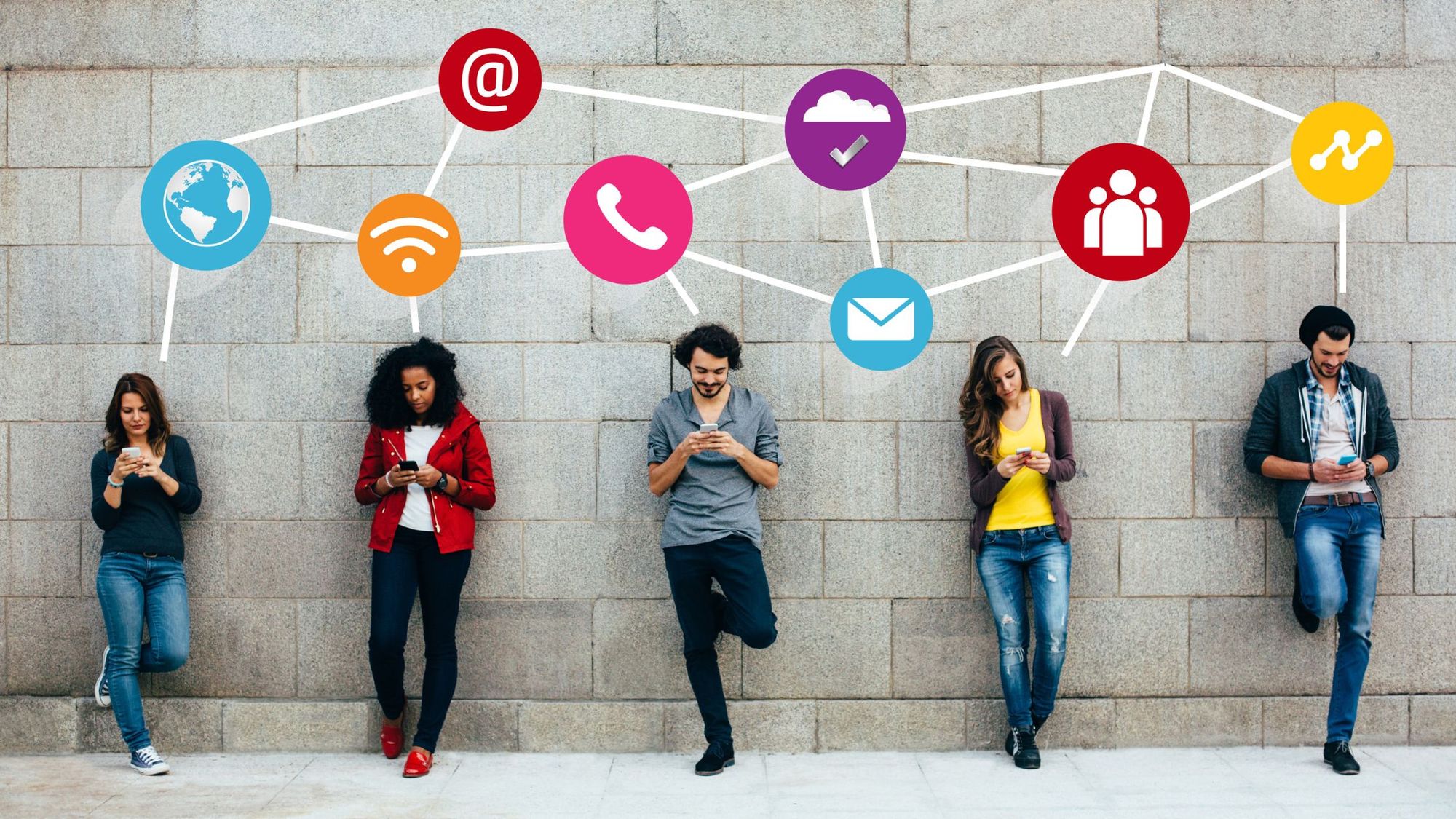
A digital diet might be what you need if you find yourself addicted to digital platforms such as social media. It’s undeniable that TikTok, Instagram and Facebook are thoroughly entertaining and engaging. You can effortlessly keep up with your favorite celebrities and lifestyle brands. What’s more, you check out the latest news and stay connected with friends and family.
However, spending hours endlessly scrolling social media has its downsides. It can trigger FOMO (fear of missing out), affect your mental and physical health, derail your productivity, and eat into the time that would be better spent with loved ones. It can also be a major time suck, and cause you to stay up too late. Luckily, disconnecting from gadgets that seemingly have a hold on you can reverse these and other negative effects.
If you notice you have a compulsive urge to check your phone every other minute, a digital diet might be just the thing for you. As Prince Harry says, “Life is better after going on a digital diet.”
Keep reading to learn more about a digital diet, the dangers of being tethered to technology, why scheduling a regular digital diet is important, and tips for powering through your digital diet.
What is a Digital Diet?
Digital gadgets are now more advanced than ever, easily portable, super convenient, and thoroughly entertaining. As a result, we tend to spend so much time staring at our screens.
Too much tech, however, can take a toll on your well-being. Technology overuse could lead to problems such as chronic anxiety, stress, restlessness, trouble focusing, and extreme anger. But with the aid of a digital diet, you can avoid the adverse effects of technology.
A digital diet involves taking a break from digital devices connected to the internet, like your smartphone, tablet, laptop, or desktop. But it doesn’t mean totally quitting technology. It’s all about setting healthy boundaries when using your gadgets so you can get your life back into balance.
The partial or total disconnect from your electronic devices can last for several hours a day, 24 hours, or longer. By frequently detaching yourself from the digital world, you can be more present in real life.

The Dangers of Social Media
Heavy internet usage has been linked to real concerns, including:
Lost Time
It’s pretty easy to get sucked into the timeless black hole of social media. It typically begins with you checking a few Twitter posts and replying to a few Instagram messages. Before you know it, you’ve wasted hours upon hours on aimless browsing and no longer have time to do what you had planned.
It could also be that you instinctively grab your phone every few minutes or hours to check what’s going on in your circles. At the end of the day, you realize you’ve spent most of your time rotating through your favorite social media apps.
Social media offers instant gratification and delivers dopamine, the feel-good hormone, with every tap. However, mindless doom scrolling, whether for entertainment or to avoid feeling bored or lonely, could be taking away from the valuable time you should be working, spending one-on-one with loved ones, and performing other important activities.
Besides that, staring at your digital screen for extended periods can lead to many problems. It can cause eye strain, blurred vision, backaches, headaches, neck pain, and more.
Has the distraction that surrounds you on social media become so overwhelming that you can’t look away from your phone for too long? A digital diet might just be what you need to get back on track.
The Comparison Trap
People compare themselves to others all the time. But social media has magnified this. Every time you go online, there are endless videos and photos to remind you of how others have a better life than yours.
Everybody else on social media seems to have a perfect life – men with chiseled bodies, gorgeous women from head to toe, luxury cars, expensive shopping sprees, bridal showers, world-class vacations, pregnancy shoots, dream homes, career achievements, and the list goes on.
The reality is nobody has it all together. Still, you can inevitably become jealous of others, and there goes your peace of mind. Sadly, social comparison can wreak havoc on your well-being.
Unhealthy social comparisons or believing others have the world at their feet can make you feel frustrated, angry, and hopeless. It can also lead to low self-esteem and poor body image because you feel you have an unfulfilling life or are not good enough.
If negative comparisons pop up in your mind when you’re online, a digital diet can get you out of the comparison trap.

The Impact of Social Media on Your Mental Health
Social media can give you a serious case of FOMO. You start to feel uneasy, and your mood changes for the worse as you keep scrolling through impressive photos and videos of romantic dates, designer bags, clothes, shoes, epic parties, job promotions, engagement surprises, and so many other things you wish you had.
You ask yourself why you have to sit on the sidelines and watch as everyone else lives their best life. Since you only see people’s highlight reels, you imagine they live better lives than yours.
But social media is full of filtered photos and videos that distort reality. Nonetheless, this false perception created in social media can lead to social anxiety.
Additionally, feeling jealous, resentful, and down on yourself because of what you see on social media can shatter your confidence and fuel depression.
The Benefits of a Digital Diet
If you’ve never tried a digital diet before, there’s no better time to start than now. Disconnecting from technology regularly has plenty of benefits, including:
Improves Your Mental Health
Spending a lot of time online means less time for physical interactions. Research shows that this negatively impacts your mental health.
Taking some much-needed time away from technology can significantly improve your mental health. A study found that participants experienced lower stress levels after going offline for only one week.
Reduces the Symptoms of Digital Eye Strain
A digital diet will give your eyes some much-needed rest from technology. It can help alleviate the uncomfortable symptoms of digital eye strain like:
- Eye fatigue
- Dry eyes
- Double or Blurred vision
- Headaches
- Neck, back, or shoulder pain
- Increased sensitivity to light
Gives You Back More of Your Valuable Time
That constant urge to keep checking your socials takes up so much of your time. If your time flies by so fast, a digital diet will give you back more control of your time. Think of how productive you can be and get more done without distractions.
Helps You Break Free from the Comparison Trap
Constantly seeing photos and videos on social media that are actually far from authentic can push you into a downward spiral of decreased self-worth and resentment.
A digital diet can protect your mental health and remove you from the comparison trap. As you step away from social media and reconnect with the real world, you’ll start to appreciate how far you’ve come. It’ll also be easier to focus on becoming the best version of yourself.
Tips on How to Do a Digital Diet
Here’s how you can ensure an effective digital diet:
Create a Plan
Come up with reasons why you need a digital diet and what you hope to achieve by unplugging. Has your productivity plummeted? Have you lost sight of what’s important? It helps to put down your digital diet goals on paper. Once you figure out what you want to improve by going offline, you can take the next step.
Take it Slow
It may be hard to quit all your socials at once. Therefore start slow. For instance, you can gradually reduce the number of hours you spend on social media. If you’re on your phone 6 hours a day, begin by cutting back to 4 hours. From there, you can work up to 3 or 2 ½ hours. Remember to stick to your rules.
Get an Accountability Buddy
A close friend or family member can be a great support system while you’re doing your digital diet. They’ll help you hold yourself accountable and complete the process successfully. Best case scenario, they’re doing a digital diet with you, so you can hold each other accountable to the process.
Rid Yourself of Distractions
The features on your phone or tablet could help limit your technology use. For instance, you can mute notifications for apps that tempt you to indulge. You can also enable “Do Not Disturb” mode whenever you’re busy to reduce interruptions.
If you care about your health, and you want to do more to boost your well-being, take a DNA test from CircleDNA to find out more about how to boost your health.
References
- https://www.youtube.com/watch?v=qGQcT0LplZk
- https://pubmed.ncbi.nlm.nih.gov/30859387/
- https://www.researchgate.net/publication/284002412_The_interplay_between_Facebook_use_social_comparison_envy_and_depression
- https://www.ncbi.nlm.nih.gov/pmc/articles/PMC7364393/
- https://www.sciencedirect.com/science/article/abs/pii/S0165178118306073





